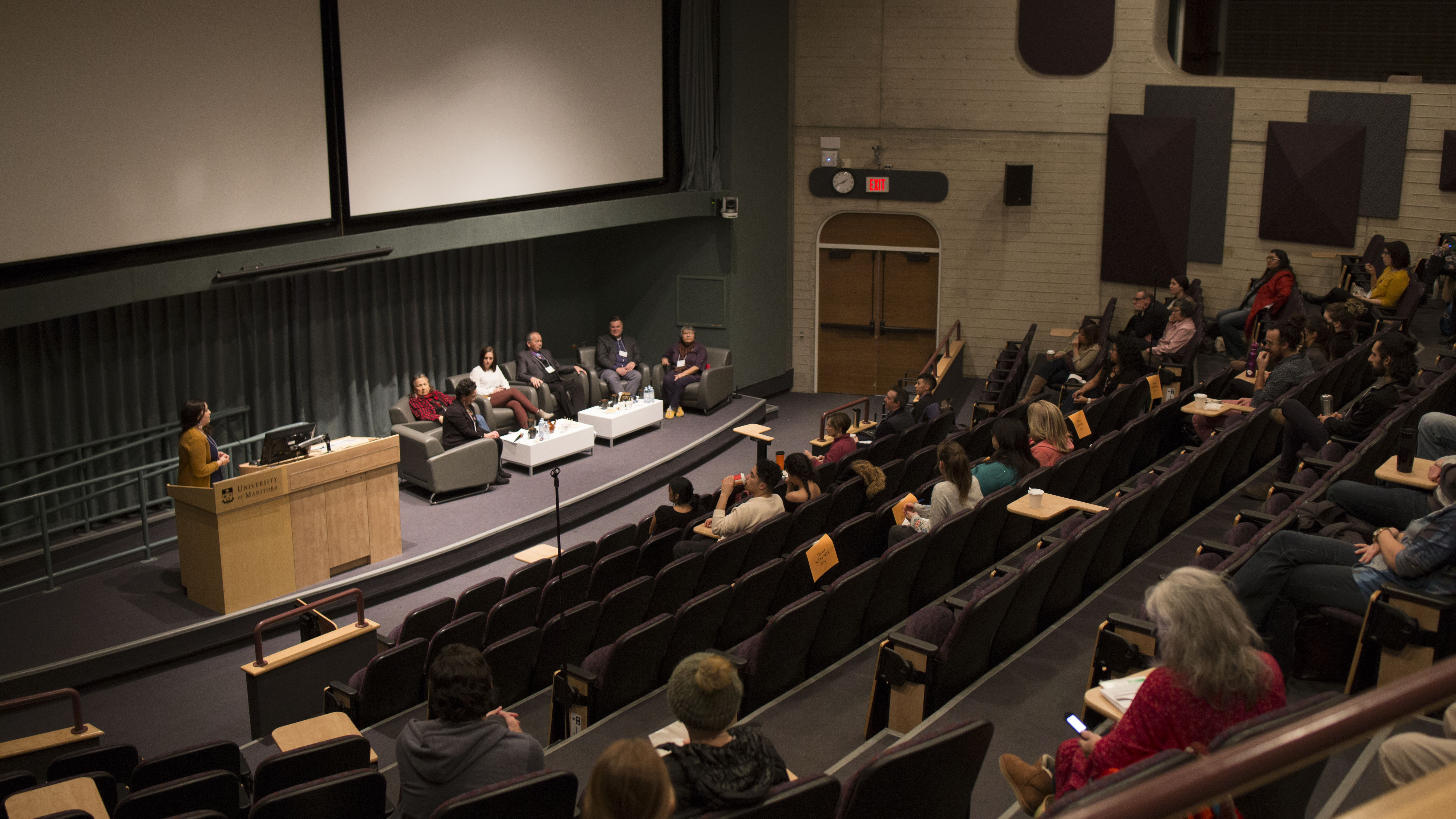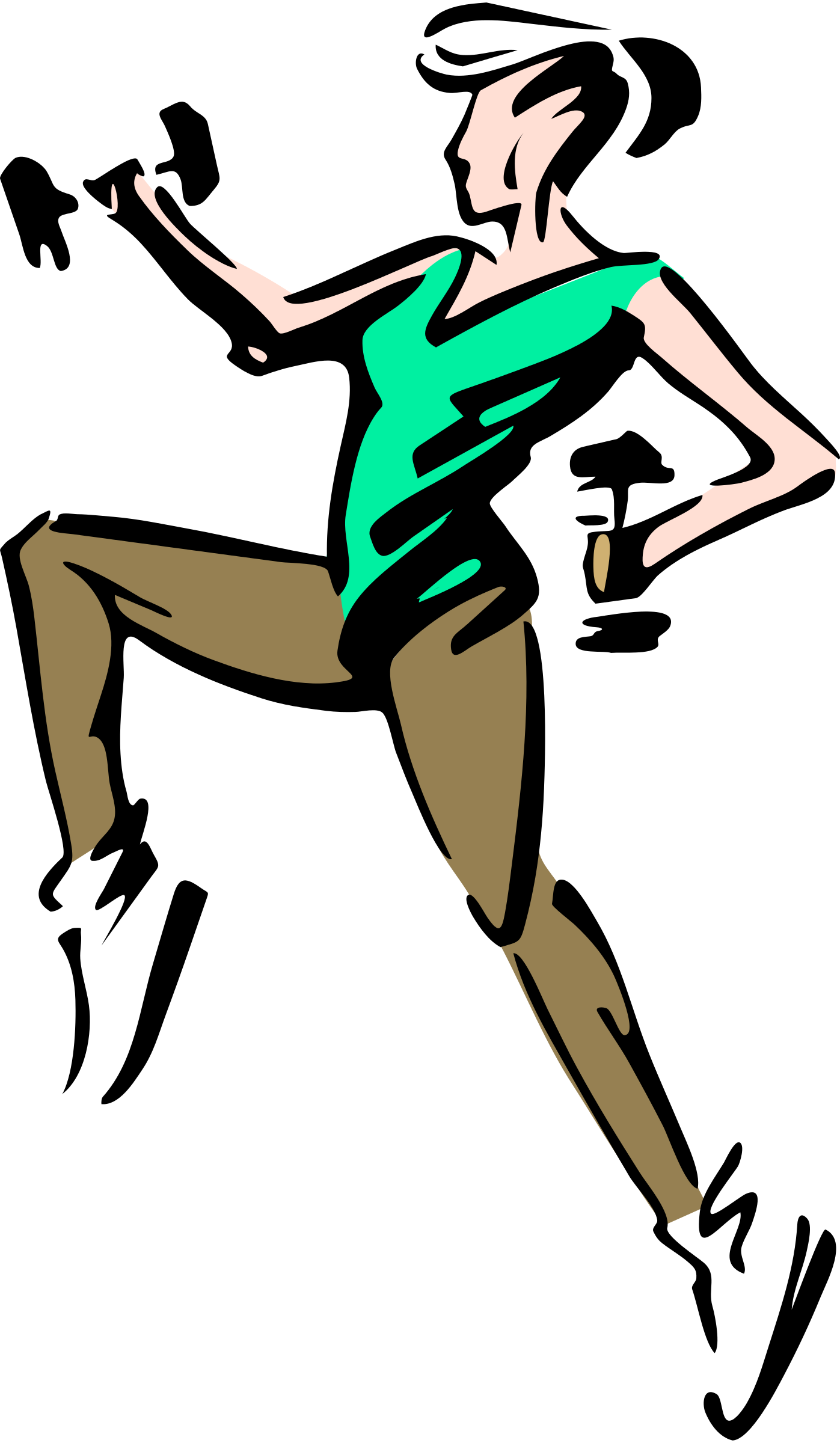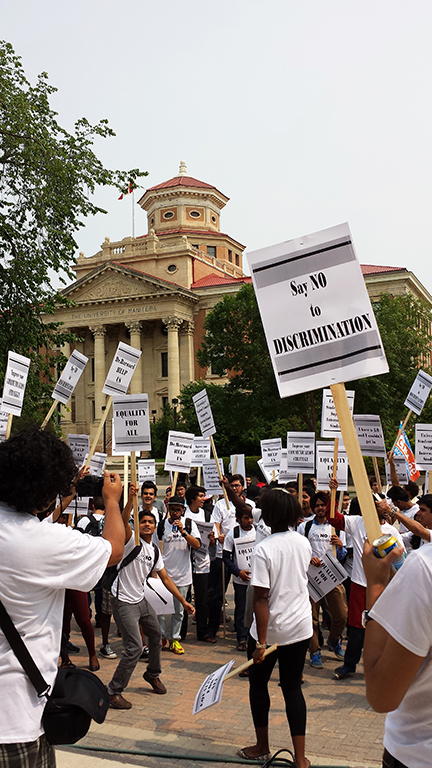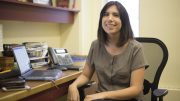Indigenous-focused research took centre stage last week when the sixth annual Indigenous health research symposium was held at the U of M Bannatyne campus Nov. 21 and 22.
The symposium, titled Our truths, our voices: Reclaiming the world through story, featured workshop sessions, research poster presentations, a “tea with elders” keynote — a discussion panel with First Nations, Métis and Inuit elders and facilitators — and research progress presentations.
The symposium’s theme this year focused on “the importance of centring the Indigenous voice in health research and the critical role that language plays in disrupting colonial narratives.”
Director of Manitoba First Nations Centre for Aboriginal Health Research and facilitator of the symposium Josée Lavoie said the symposium serves to bring a diverse range of Indigenous health research to a wider audience.
“It’s an opportunity to bring community members, students, faculty members, community researchers together to talk about research, to talk about the innovations that we have in our workplace,” said Lavoie.
Lavoie said rather than solely focus on illness prevention and treatment, the research presented works to explore a wider concept of “health in a positive sense.”
“For an Indigenous community health is language, health is housing, health is water, health is employment, health is pride,” said Lavoie.
“It’s mental health, it’s a connection to the land, to the animal, it’s food security.”
There is also a strong focus on inter-community support within the symposium.
“We try to promote strength-based research,” said Lavoie. “Instead of talking about all the bad things that are happening, we talk about all the good things that are happening as well.”
This is, in part, so presenters and visitors alike feel they are safe to take in research, ask questions and build a dialogue around what they are learning, according to Lavoie.
“What is very important for us is that this is a safe environment where we come together once a year to tell each other about what we’ve been doing, to tell each other about good stories, to have, sometimes, difficult conversations but to have them in a safe and culturally appropriate and meaningful way,” she said.
Lavoie said that the symposium is also an opportunity for students to present their research and receive feedback.
“It’s meant to be a mentorship opportunity as well for students to develop their own communication skills in front of their community members, sometimes their parents, sometimes their relatives because it’s a very small community altogether,” she said.
Community members provide a particularly important perspective. Lavoie explained that Indigenous health research only goes forward with the guidance of elders.
“In Indigenous health, the role of elders is extremely important,” said Lavoie.
“They have a wealth of experience and knowledge and wisdom that we want to learn from and that guides our research project.”
Julianne Sanguins is the research program manager with the Manitoba Metis Federation and registered nurse with the Metis Prescription Drug Benefit Program, Manitoba Metis Federation Health and Wellness Department.
Sanguins, who presented twice at the symposium, spoke on the considerable impact that Métis health research has had on the symposium over the years.
“I think it’s important to have the Métis voice,” said Sanguins.
“We’ve been involved in the symposium since it started, but we often have only had just one presentation. This time we had, I think, we have five presentations and a poster. So, it’s a whirlwind, and certainly the interest is there.”
One of Sanguin’s presentations, “Reclaiming health and wellness through the wisdom of our Elders,” focused on the exchange of information between generations and “how important […] understanding and learning from the elders what it’s been like and how they learned, and then the elders learning from the youth about their experiences.”
As the youth engagement co-ordinator for Aboriginal Youth Opportunities (AYO) — a local volunteer group focused on providing leadership opportunities for Indigenous youth — Jenna Wirch helps young people who may be dealing with health issues and educates others on traditional healing alternatives.
Wirch was one of the workshop presenters with the AYO. The presentation, “13 Moons: A cultural-based harm reduction program for people who use drugs (PWUD) in Winnipeg,” focused on harm-reduction strategies.
“It’s important to me because we need to get everyone on the same page, and not just Indigenous young people,” said Wirch.
“We need everyone at the table because it takes a village to raise a child.”





